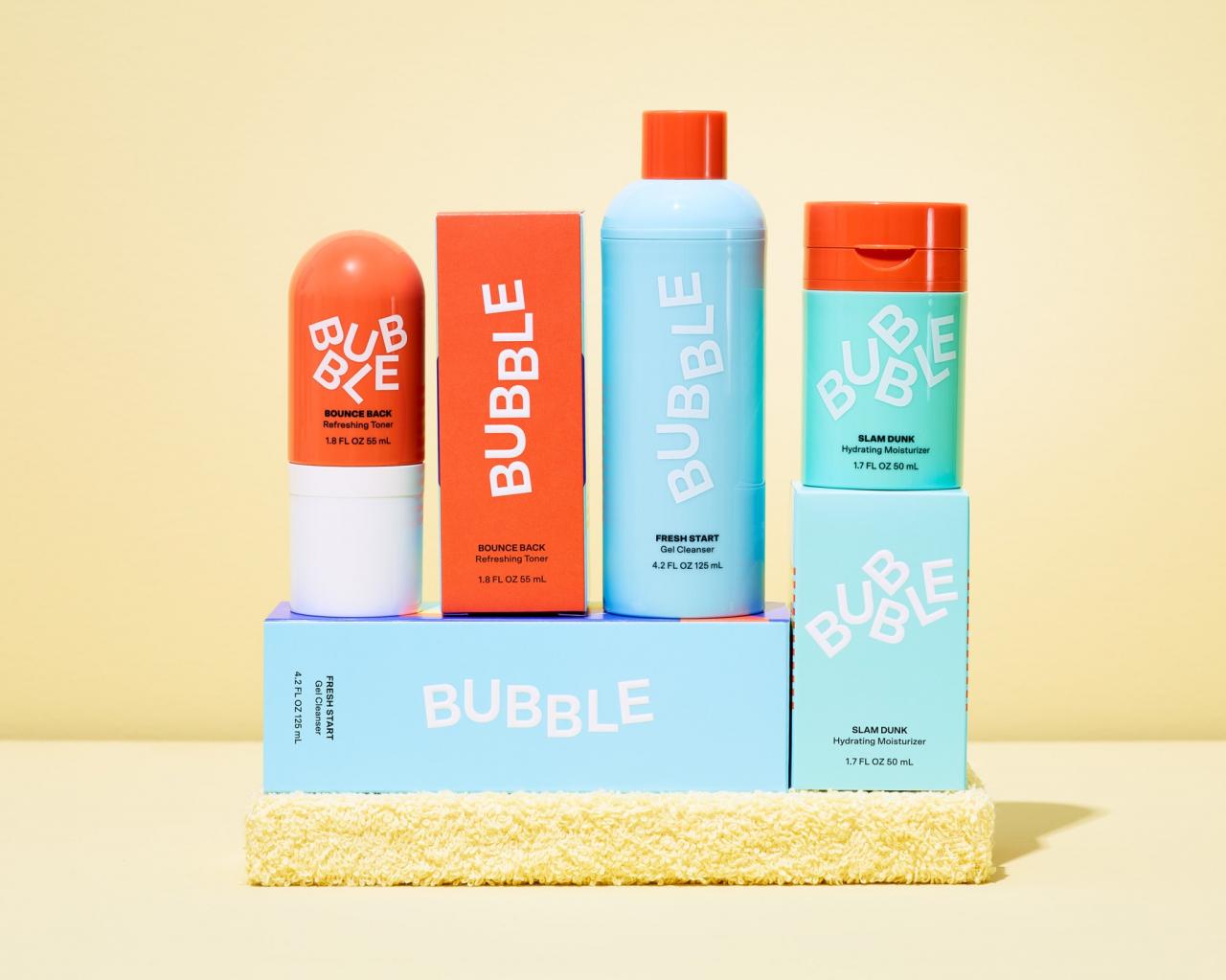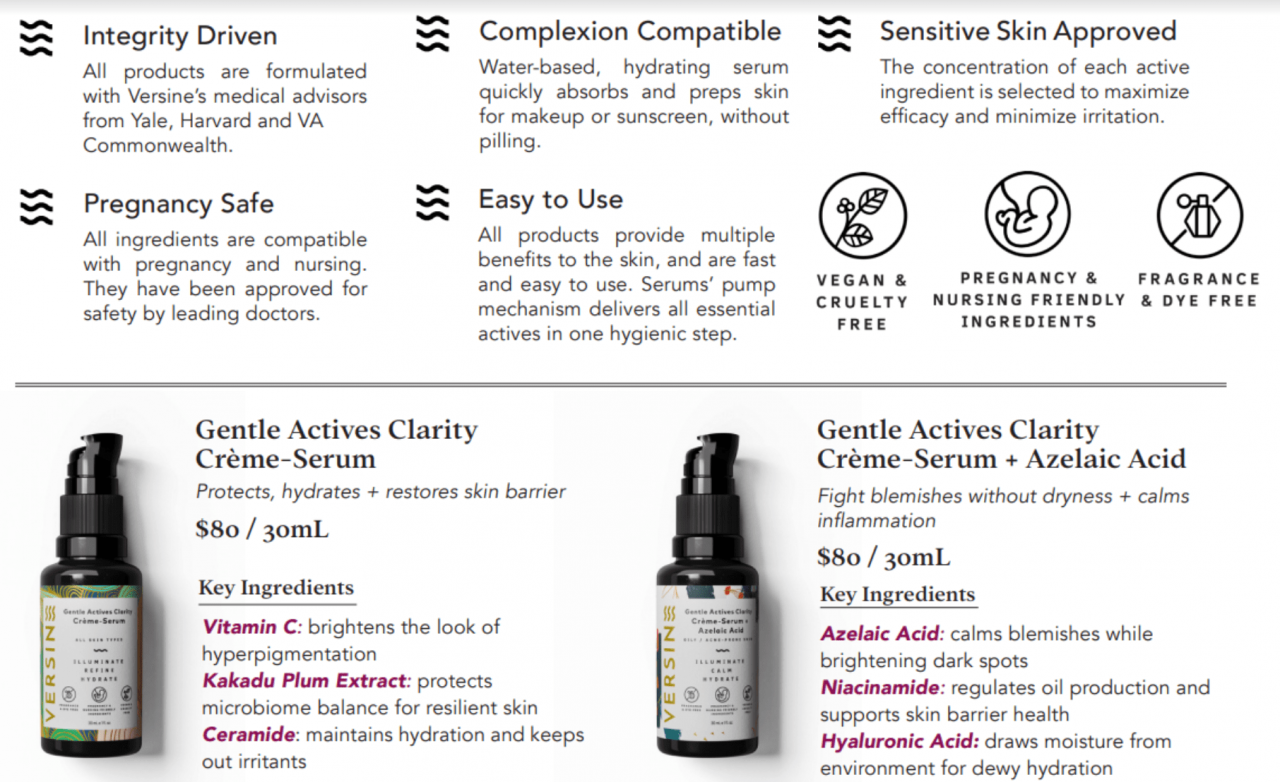Indie skincare brands are taking the beauty industry by storm, offering consumers natural, ethical, and innovative skincare solutions. These brands are challenging the dominance of established players with their unique values and commitment to sustainability.
Indie skincare brands are characterized by their use of natural and organic ingredients, transparency in their practices, and customized formulations that cater to specific skin concerns. They often embrace innovation and experimentation, bringing new and exciting products to the market.
Overview of Indie Skincare Brands
Indie skincare brands have emerged as a vibrant force in the beauty industry, challenging the dominance of established conglomerates. These independent, often small-scale businesses are characterized by their unique formulations, ethical practices, and a deep commitment to transparency and sustainability.
Their emergence reflects a growing consumer demand for products that align with personal values and offer a more authentic skincare experience.
Growth and Popularity
Indie skincare brands have experienced significant growth in recent years, driven by the rise of e-commerce and social media platforms. These channels have enabled them to reach a wider audience and build loyal customer bases. Their success is also attributed to a growing awareness of the potential harmful effects of synthetic ingredients and a desire for more natural and effective skincare solutions.
Key Features and Benefits of Indie Skincare

Indie skincare brands are gaining popularity due to their unique offerings that cater to specific skin concerns. These brands often prioritize natural and organic ingredients, ethical practices, and customized formulations.
Natural and Organic Ingredients
Indie skincare products are known for their use of natural and organic ingredients. These ingredients are derived from plants, fruits, and herbs, providing a gentle and effective way to nourish and protect the skin. By avoiding harsh chemicals and synthetic fragrances, indie skincare products are suitable for all skin types, even sensitive skin.
Transparency and Ethical Practices, Indie skincare brands
Transparency is a key feature of indie skincare brands. They are often vocal about their sourcing practices, ingredient lists, and manufacturing processes. This transparency builds trust with customers and ensures that they are aware of what they are putting on their skin.
Additionally, indie skincare brands often prioritize ethical practices, such as cruelty-free production and sustainable packaging.
Customized Formulations for Specific Skin Concerns
Indie skincare brands offer a wide range of products tailored to specific skin concerns. Whether you have dry, oily, acne-prone, or sensitive skin, there is an indie skincare product that can address your needs. These brands often take a holistic approach to skincare, considering the individual’s lifestyle, diet, and skin type to create personalized formulations.
Innovation and Experimentation
Indie skincare brands are not afraid to innovate and experiment with new ingredients and formulations. They are constantly researching and developing new products that push the boundaries of skincare. This innovation leads to cutting-edge products that address emerging skin concerns and provide unique solutions.
Discover the secrets of ageless beauty with monastery skincare , inspired by ancient rituals and crafted with pure, natural ingredients. Indulge in the exquisite artistry of japanese best skincare , renowned for its delicate touch and unparalleled radiance. Embrace the purity of untoxicated skincare , free from harsh chemicals and embracing the power of nature.
Experience the transformative effects of roe skincare , harnessing the regenerative properties of caviar for a youthful, luminous complexion.
Marketing and Distribution Strategies
Indie skincare brands employ innovative marketing and distribution strategies to reach their target audience and build brand loyalty. These strategies include:
Online Presence and Social Media Engagement
Indie skincare brands leverage online platforms to connect with potential customers. They establish a strong online presence through websites, social media channels, and e-commerce marketplaces. Social media engagement is crucial, allowing brands to interact with followers, share product information, and generate buzz.
Influencer Collaborations and Word-of-Mouth Marketing
Influencer collaborations are a powerful tool for indie skincare brands. Partnering with influential bloggers, beauty experts, and social media personalities helps spread the word about their products and build credibility. Word-of-mouth marketing is also essential, as positive customer experiences and recommendations can significantly boost brand awareness.
Direct-to-Consumer Sales and Subscription Boxes
Direct-to-consumer (DTC) sales allow indie skincare brands to sell their products directly to customers through their own websites or online marketplaces. Subscription boxes are another popular DTC strategy, offering customers a curated selection of products on a regular basis.
Partnerships with Retailers and Spas
Partnerships with retailers and spas provide indie skincare brands with a physical presence and access to a wider customer base. These partnerships can involve selling products in-store, offering spa treatments, or providing samples to potential customers.
Challenges and Opportunities
Indie skincare brands face both challenges and opportunities in the competitive beauty market. Understanding these factors can help them navigate the landscape and thrive.
Challenges
Competition from Established Brands
Indie brands compete with established skincare companies that have vast resources, marketing power, and brand recognition. They must find ways to differentiate their products and reach their target audience effectively.
Limited Resources and Funding
Indie brands often have limited financial resources compared to larger companies. This can restrict their ability to invest in product development, marketing, and distribution.
Meeting Regulatory Requirements
Indie skincare brands must comply with strict regulatory requirements, including those governing ingredient safety, labeling, and manufacturing practices. Meeting these requirements can be complex and costly.
Opportunities
Capitalizing on Growing Consumer Demand for Natural and Sustainable Skincare
Consumers are increasingly seeking natural and sustainable skincare products. Indie brands can tap into this growing demand by emphasizing the natural and eco-friendly aspects of their products.
5. Case Studies and Examples: Indie Skincare Brands
Several indie skincare brands have achieved significant success by leveraging innovative products, effective marketing strategies, and a deep understanding of their target audience.
Here are a few notable case studies and examples:
The Ordinary
The Ordinary is a Canadian skincare brand known for its affordable, science-backed products. The brand’s products are formulated with high concentrations of active ingredients and are often compared to more expensive luxury brands.
The Ordinary’s marketing strategy has been highly effective in reaching its target audience. The brand uses social media, influencer marketing, and online advertising to promote its products.
Drunk Elephant
Drunk Elephant is an American skincare brand founded in 2012. The brand’s products are free of essential oils, silicones, sulfates, and fragrances, and are designed to be gentle on the skin.
Drunk Elephant’s marketing strategy has focused on building a strong online presence and creating a community of loyal customers. The brand uses social media, email marketing, and influencer marketing to connect with its target audience.
Glossier
Glossier is an American skincare and makeup brand founded in 2014. The brand’s products are known for their minimalist packaging and user-friendly formulas.
Glossier’s marketing strategy has been highly effective in creating a loyal customer base. The brand uses social media, influencer marketing, and online advertising to promote its products.
Impact on the Beauty Industry
Indie skincare brands have had a significant impact on the beauty industry. These brands have helped to democratize skincare by making high-quality products available at affordable prices.
Indie skincare brands have also helped to shift the focus of the beauty industry towards natural and sustainable products. These brands have shown that it is possible to create effective skincare products without using harsh chemicals or animal testing.
Conclusion
The rise of indie skincare brands reflects the growing consumer demand for natural, sustainable, and effective skincare products. These brands are not only providing consumers with healthier skincare options but also challenging the traditional beauty industry norms. As the demand for indie skincare continues to grow, we can expect to see even more innovative and exciting products from these brands in the future.
FAQ
What are indie skincare brands?
Indie skincare brands are small, independent skincare companies that are not owned by large corporations. They typically use natural and organic ingredients, and they are committed to ethical and sustainable practices.
What are the benefits of using indie skincare products?
Indie skincare products are often more natural and gentle than products from larger brands. They are also more likely to be customized to your specific skin concerns. Additionally, indie brands are often more affordable than larger brands.
How can I find indie skincare brands?
You can find indie skincare brands online, at natural food stores, and at some beauty retailers. You can also search for indie skincare brands on social media.





Leave a Reply